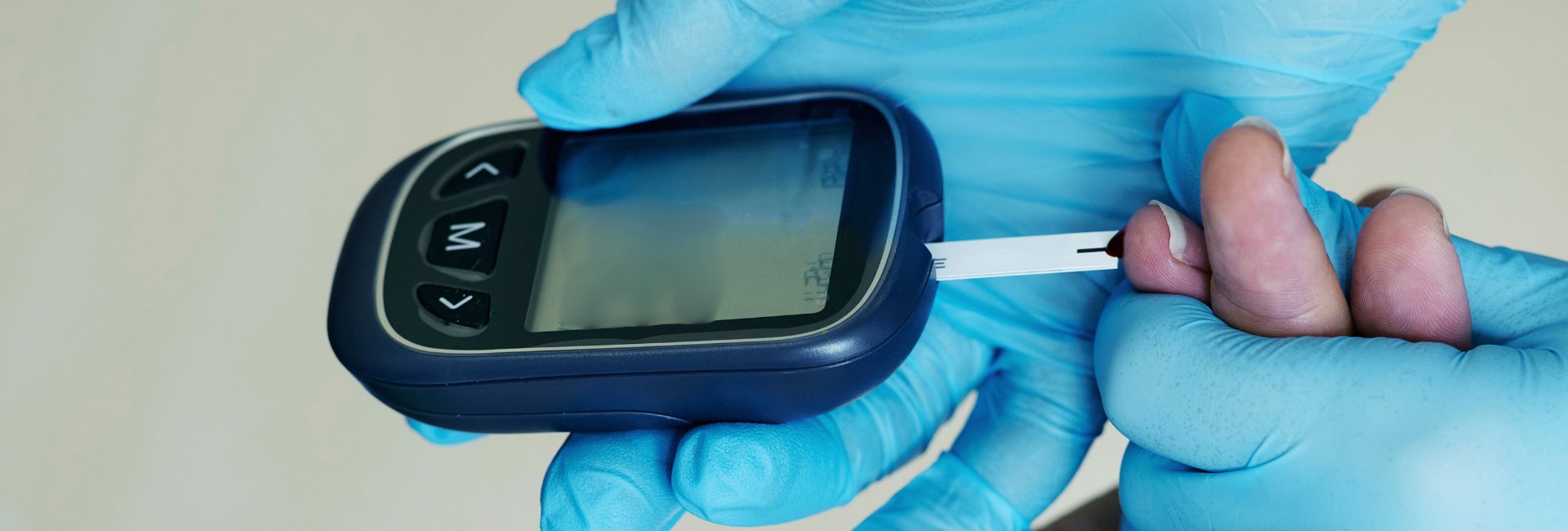 What is low blood sugar (Hypoglycaemia)?
What is low blood sugar (Hypoglycaemia)?
Low blood sugar, or hypoglycaemia, occurs when the blood sugar levels drop below 4.0 mmol/L (70 mg/dl).
It is important to:
- Recognise the symptoms of low blood sugar (hypoglycaemia)
- Treat it immediately to prevent it from becoming severe
- Prevent hypoglycaemia from occurring
Low blood sugar (hypoglycaemia) can occur if you are on diabetes treatments such as insulin or glucose-lowering tablets (e.g. glipizide, gliclazide, glimepiride, glibenclamide and repaglinide).
Recognising low blood sugar (hypoglycaemia)
The early symptoms of hypoglycaemia include hunger, tremors, sweating, rapid heartbeat, anxiety, dizziness, headache, and irritability.
If mild hypoglycaemia is not promptly treated, severe hypoglycaemia may develop.
Severe symptoms of hypoglycaemia include blurred vision, slurred speech, fits, confusion, drowsiness, or loss of consciousness. If a person with low blood sugar becomes drowsy or unconscious, please call an ambulance immediately.
Treating low blood sugar (Hypoglycaemia)
If you suspect you are experiencing early symptoms of hypoglycaemia, take immediate steps to confirm and correct it -
Step 1: Check
- Use a blood glucose meter to confirm that your blood sugar level is less than 4 mmol/L.
- If you do not have a blood glucose meter, skip to step 2.
Step 2: Treat using the 15/15 rule
- Take 15 grams of quick-acting carbohydrate or sugar to raise your blood sugar level quickly.
Examples of 15 grams of quick-acting carbohydrate or sugar:
- 1 tablespoon of sugar
- 1 can (320ml) of regular soft drink (non-diet)
- 6 to 7 soft sweets (not sugar-free)
- 4 glucose tablets
It is important to be prepared. Always carry quick-acting carbohydrates or sugar with you. Tip: Avoid taking food that is high in fat such as chocolate bars to treat low blood sugar. Fat slows down the movement of sugar into your blood.
|
Step 3: Re-check blood sugar level after 15 minutes
- If blood sugar level is still below 4 mmol/L, repeat Step 2.
- If blood sugar level remains low (less than 4 mmol/L) after two rounds of treatment, please seek medical attention.
- When blood sugar level is above 4 mmol/L, take your next meal. If your meal is more than an hour away, take a snack with 15g of slow-acting carbohydrate. This will help prevent your blood sugar level from dropping again.
Examples of snacks with 15grams of slow-acting carbohydrate:
- 1 slice of bread
- 3 pieces of plain crackers
- 1 cup of low fat milk (250ml)
|
Step 4: Evaluate
- Record all blood sugar readings and review your day’s activities (diet, exercise, medications) to find out what caused your hypoglycaemia. Inform your healthcare team during the next visit.
- If you are experiencing frequent hypoglycaemia, get in touch with your healthcare team for an earlier review.
Note for caregivers: Severe hypoglycaemia
If the person with hypoglycaemia has become unconscious or drowsy: - Do not attempt to give them any food or drink.
- Place them on their side.
- Call 995 for an ambulance immediately.
Some individuals with diabetes may have a prescription for glucagon, and you may be trained to administer it. If you are trained, administer it while waiting for the ambulance to arrive. |
Preventing low blood sugar (Hypoglycaemia)
Hypoglycaemia can occur if you are on diabetes treatments such as insulin or glucose-lowering tablets (e.g. glipizide, gliclazide, glimepiride, glibenclamide or repaglidine), especially when you:
- Delay eating or skip a meal.
- Consume too little “starchy” carbohydrates in the meal.
- Drink excessive alcohol, or drink on an empty stomach.
- Exercise more than usual.
- Experience poor appetite due to illness, such as flu, food poisoning, or urinary tract infection.
Tips to prevent low blood sugar (hypoglycaemia)
- Have regular meals.
Do not delay or skip your meal, especially after taking your insulin or glucose-lowering tablets.
If your lifestyle involves irregular meal times, discuss with your healthcare team how your treatment can be adjusted to fit your lifestyle.
- Eat enough carbohydrates during your meals
If you plan to reduce your carbohydrate intake to improve your glucose levels or lose weight, consult your healthcare team on how your diabetes medications should be adjusted before starting your new diet.
- Fast safely
If you are fasting for blood tests, do not take your diabetes tablets and insulin upon waking up. Instead, delay your tablets and insulin injection until after your blood has been drawn, and take your medications with a slightly delayed breakfast. The exception is if you have Type 1 diabetes. If you have Type 1 diabetes, you consult your doctor before omitting your insulin. Basal insulin should still be administered during fasting periods.
- Limit alcohol intake and avoid drinking on an empty stomach
If you consume alcohol socially and experience hypoglycaemia after drinking, discuss preventive strategies with your healthcare team.
- Exercise safely
Hypoglycaemia can occur during and after exercise. Discuss with your healthcare team to develop strategies for prevention. This may include medication adjustments and advice on consuming carbohydrate snacks before and during exercise.
- Carry quick-acting carbohydrates with you
Always have quick-acting carbohydrates or sugar on hand in case of hypoglycaemia. Examples include soft sweets, glucose tablets, and sugar-sweetened beverages in tetrapaks.
- Communicate openly with your healthcare team
If you experience frequent hypoglycaemia, inform your healthcare team promptly for an earlier review. Your treatment can be adjusted to prevent future occurrences.
Hypoglycaemia unawareness
If you experience frequent and recurrent episodes of hypoglycaemia, you may develop a condition known as hypoglycaemia unawareness. This means that you either no longer experience warning symptoms of hypoglycaemia or have diminished symptoms.
This condition increases your risk of severe hypoglycaemia. If you suspect you have hypoglycaemia unawareness, inform your healthcare team promptly.
Additional ResourceHypoglycaemia by HealthHub

 What is low blood sugar (Hypoglycaemia)?
What is low blood sugar (Hypoglycaemia)?















